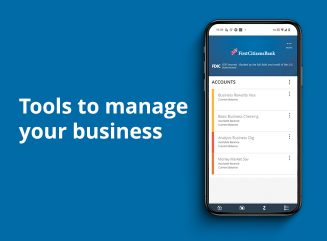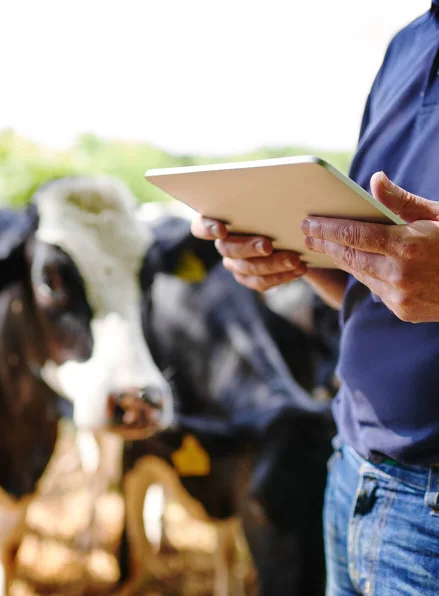
Digital banking for business
Seamlessly access all of your accounts from one place with First Citizens Digital Banking for business.

Control your portfolio
Invest how you want, when you want, in real time with Self-Directed Investing.

Digital banking for business
Seamlessly access all of your accounts from one place with First Citizens Digital Banking for business.
See how we're supporting companies
We're committed to serving companies as they expand and succeed. The proof is in our success stories.
Q4 Quarterly Market Review: Available now
The Making Sense team reviews changes in the market during Q4 2025.

Start
Make wise financial decisions and position yourself for success from the get-go.
Grow
For more than 100 years, we've helped family farms, suppliers and retailers grow.
Expand
Whether you're looking to expand to a new crop or a new county, we're here to help.
Our experience and industry knowledge helps us tailor financial services packages to meet your specific needs.
Our specialists get to know your operation so they can customize banking solutions to your unique business.
The unique nature of the agribusiness processing sector means you need financial services packages that fit your cash cycle. We can help.
We're well equipped to help you with your agriculture equipment banking and finance needs.
Our long history of working with poultry and livestock businesses means we know what you need when it comes to banking and finance.
Our experience and industry knowledge help us tailor financial services that will keep your business in bloom.


Begin or continue your long-term business investments to help your agribusiness thrive down the road.
Whether you prefer traditional banking services or the latest digital finance apps, we can help.
From your local branch staff to head office experts, we can connect you with the experts you need to get the best financial advice for your agribusiness.
Loans and lines of credit
Grow your business and manage your cash flow.
Equipment financing and leasing
Finance the equipment and machinery you need to do the job.
Deposit accounts
Choose checking, savings, CD or money market savings.
Cash management services
Help smooth your cash flow and ensure liquidity.
Retirement plans
We can advise and assist with retirement plans.D
Investment services
Today's investing choicesD are broader than ever—we can help.



Account openings and credit are subject to bank approval.
Your investments in securities and insurance products and services are not insured by the FDIC or any other federal government agency and may lose value. They are not deposits or other obligations of, or guaranteed by any bank or bank affiliate and are subject to investment risks, including possible loss of the principal amounts invested. There is no guarantee that a strategy will achieve its objective.
About the Entities, Brands and Services Offered: First Citizens Wealth® (FCW) is a registered trademark of First Citizens BancShares, Inc., a bank holding company. The following affiliates of First Citizens BancShares are the entities through which FCW products are offered. Brokerage products and services are offered through First Citizens Investor Services, Inc. ("FCIS"), a registered broker-dealer, Member FINRA and SIPC. Advisory services are offered through FCIS, First Citizens Asset Management, Inc. and SVB Wealth LLC, all SEC registered investment advisors. Certain brokerage and advisory products and services may not be available from all investment professionals, in all jurisdictions or to all investors. Insurance products and services are offered through FCIS, a licensed insurance agency. Banking, lending, trust products and services, and certain insurance products and services are offered by First-Citizens Bank & Trust Company, Member FDIC and an Equal Housing Lender icon: sys-ehl, and First Citizens Delaware Trust Company.
For more information about FCIS, FCAM or SVBW and its investment professionals, visit FirstCitizens.com/Wealth/Disclosures.
See more about First Citizens Investor Services, Inc. and our investment professionals at FINRA BrokerCheck.
Links to third-party websites may have a privacy policy different from First Citizens Bank and may provide less security than this website. First Citizens Bank and its affiliates are not responsible for the products, services and content on any third-party website.
Bank deposit products are offered by First Citizens Bank. Member FDIC and an Equal Housing Lender. icon: sys-ehl.
NMLSR ID 503941

Treasury & Cash Management
Electronic Bill Presentment & Payment
Investment & Retirement Services
Community Association Banking
Equipment Financing & Leasing
Credit Cards
Merchant Services
Email Us
Please select the option that best matches your needs.
Customers with account-related questions who aren't enrolled in Digital Banking or who would prefer to talk with someone can call us directly.